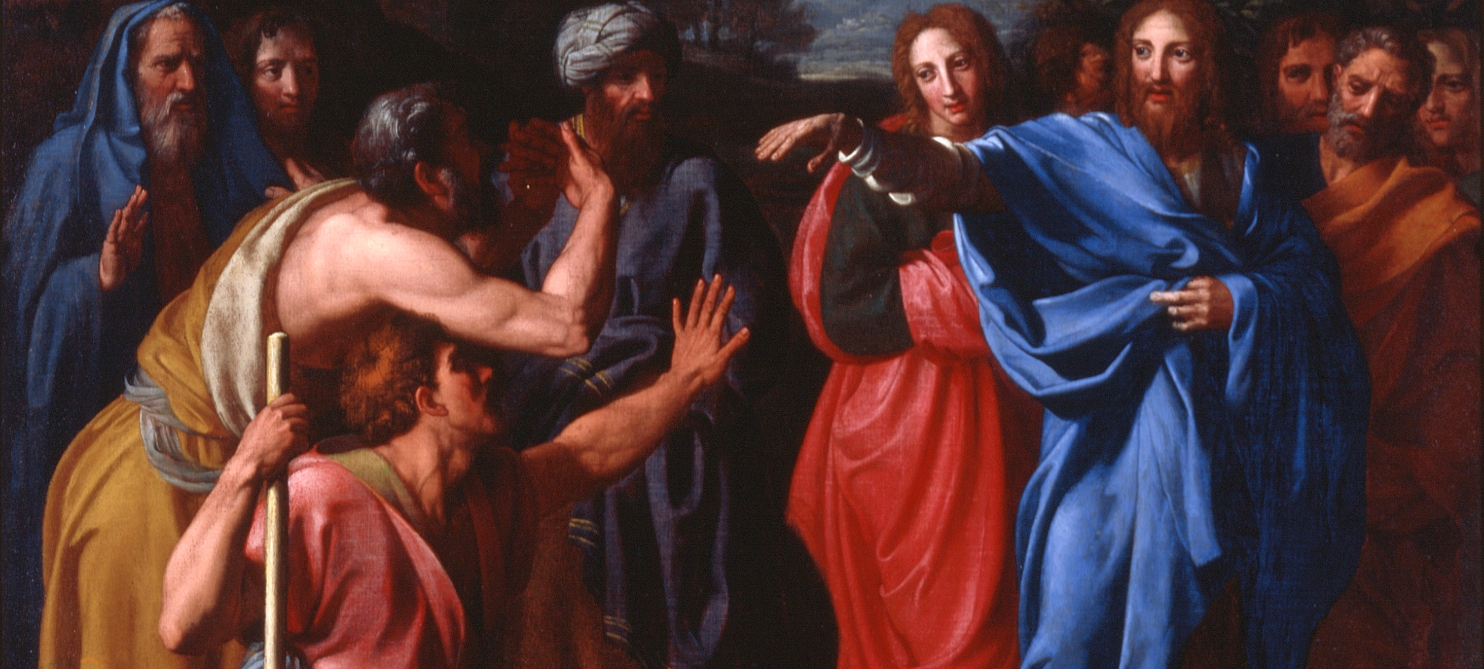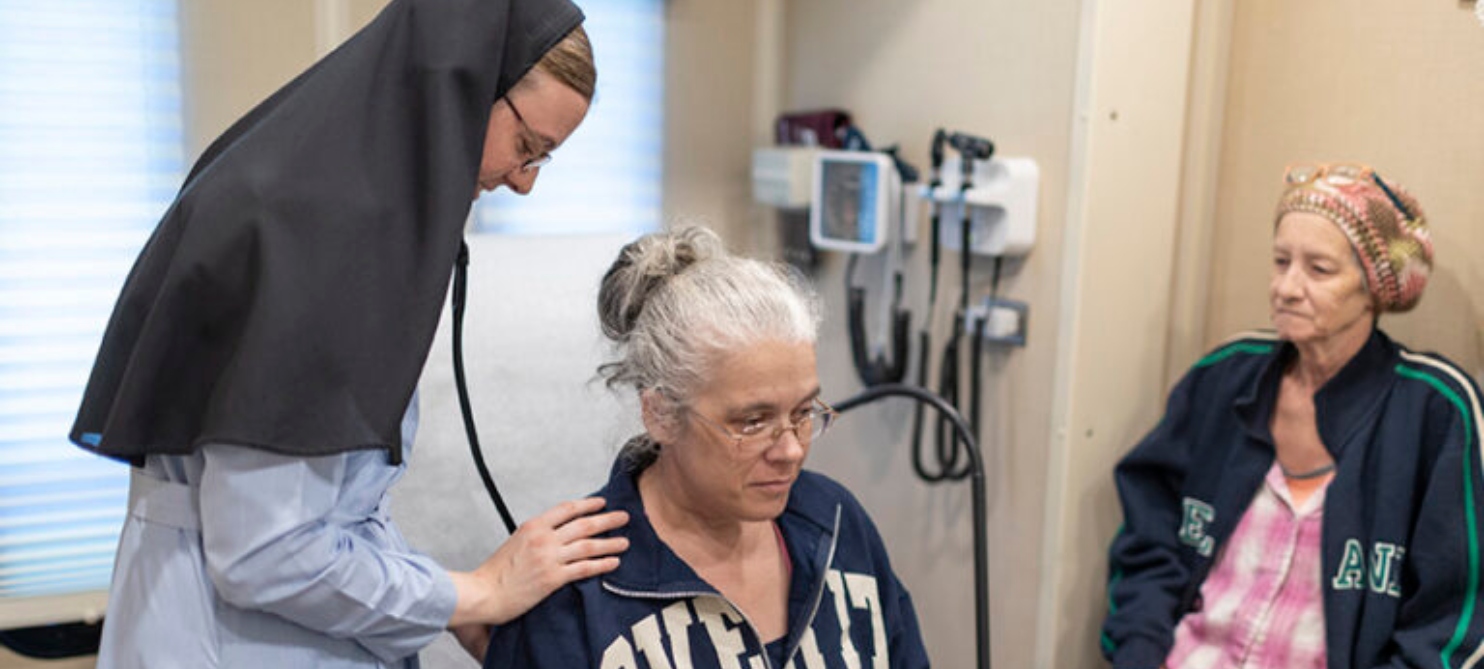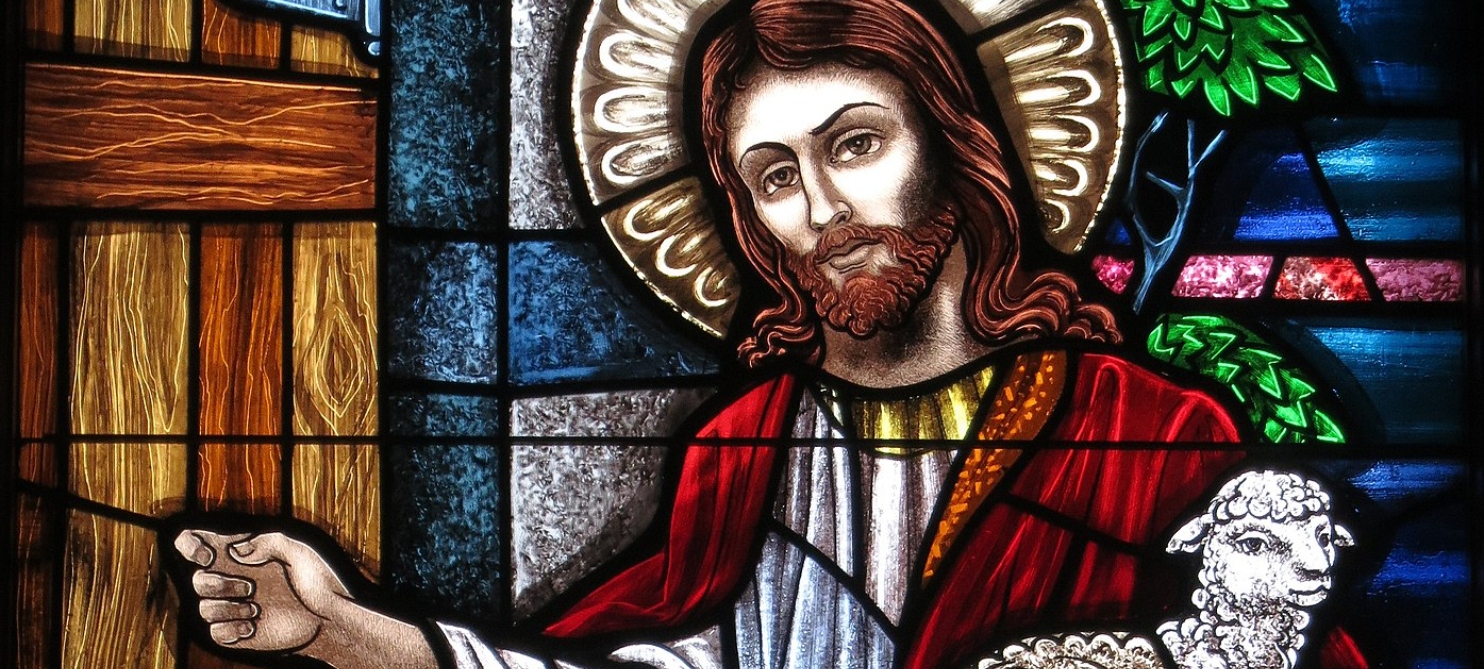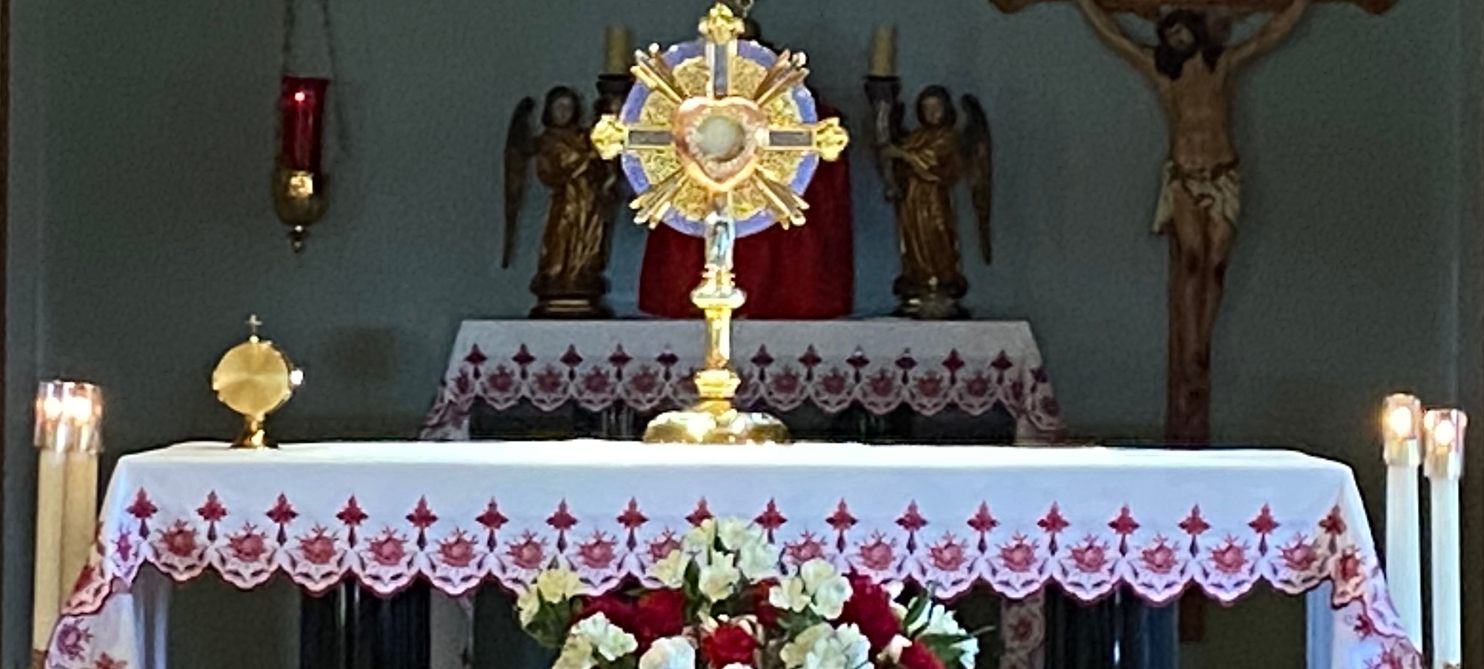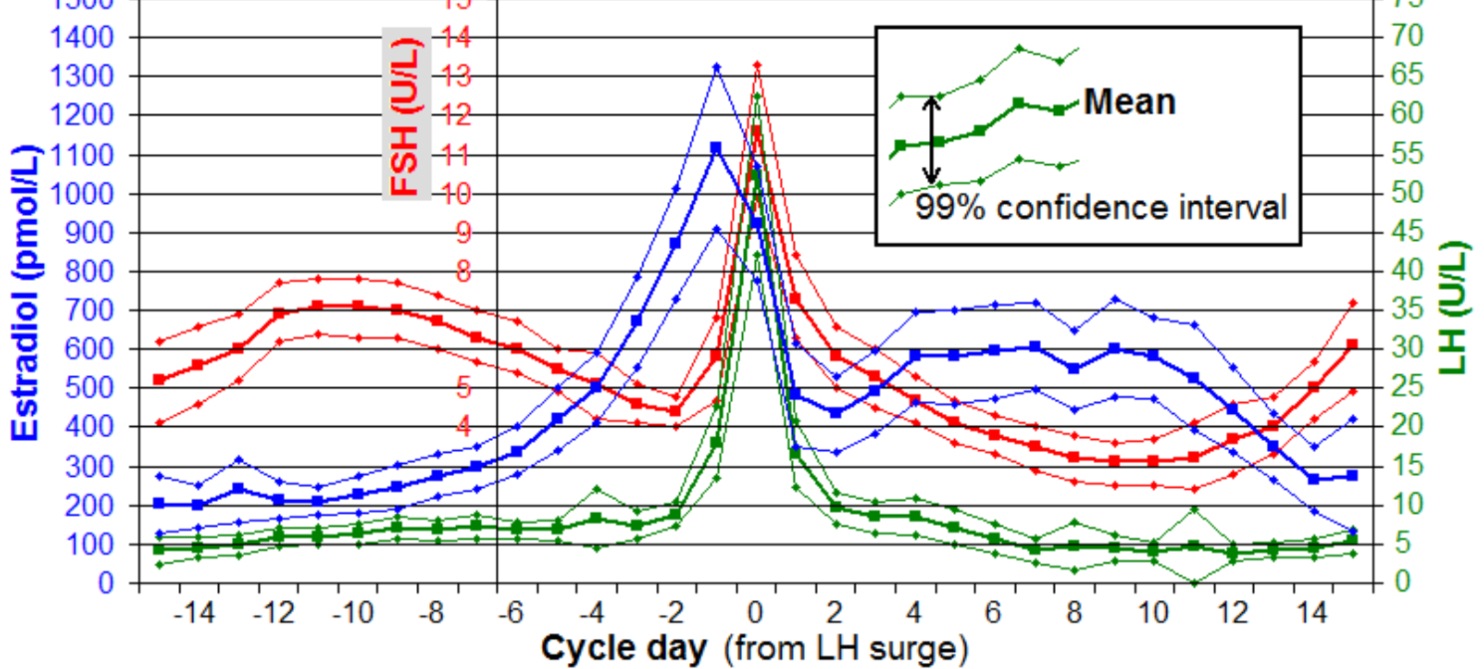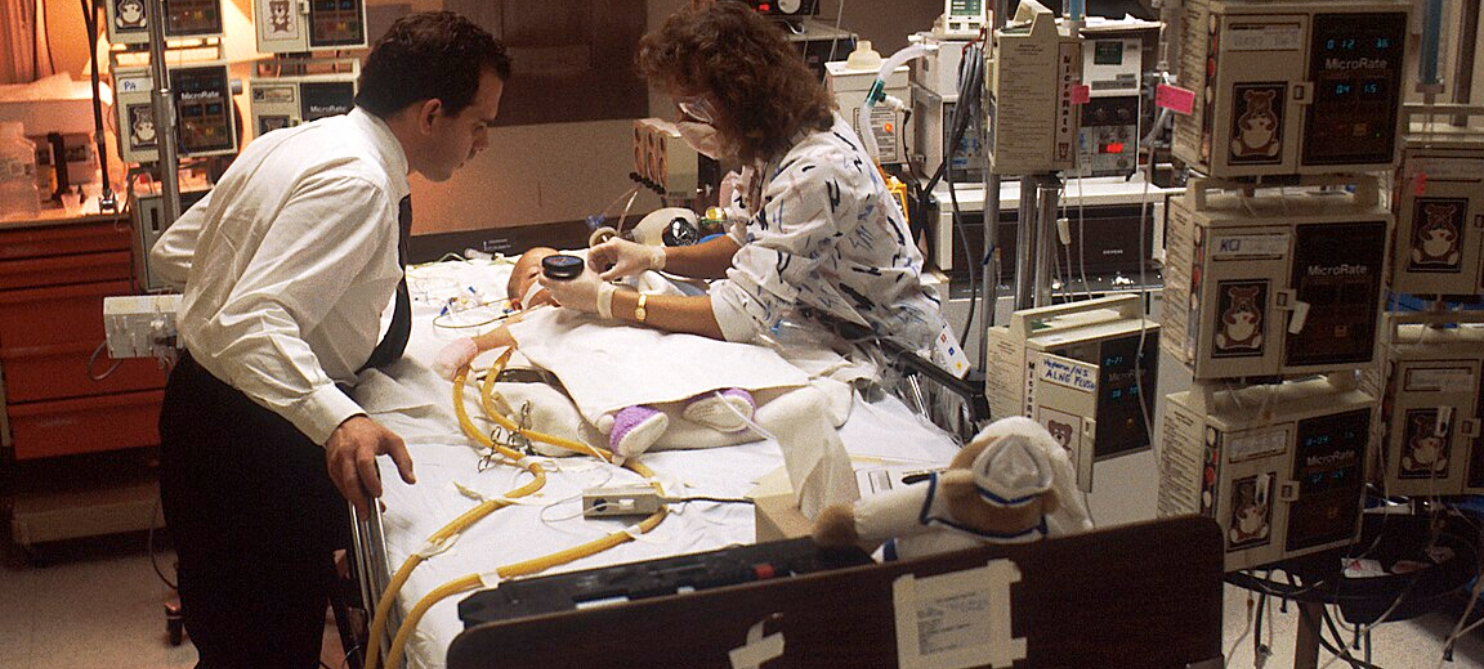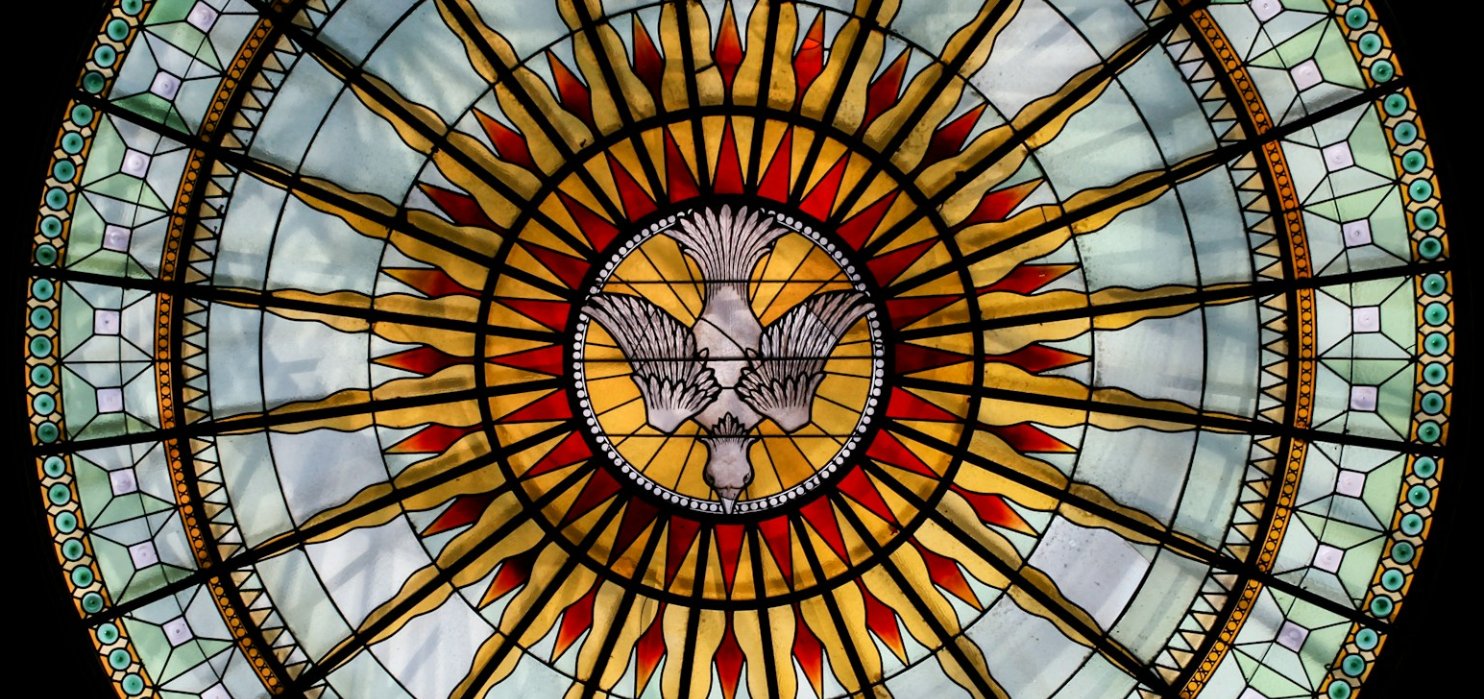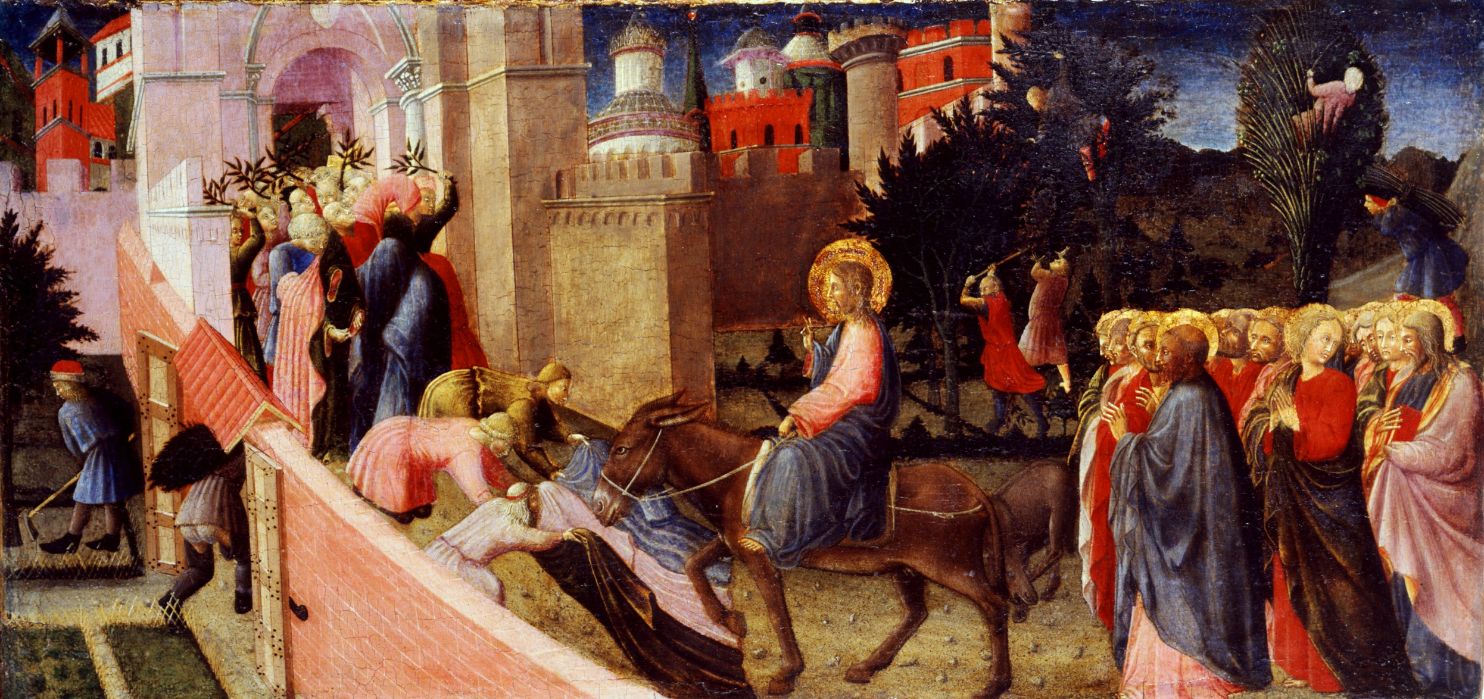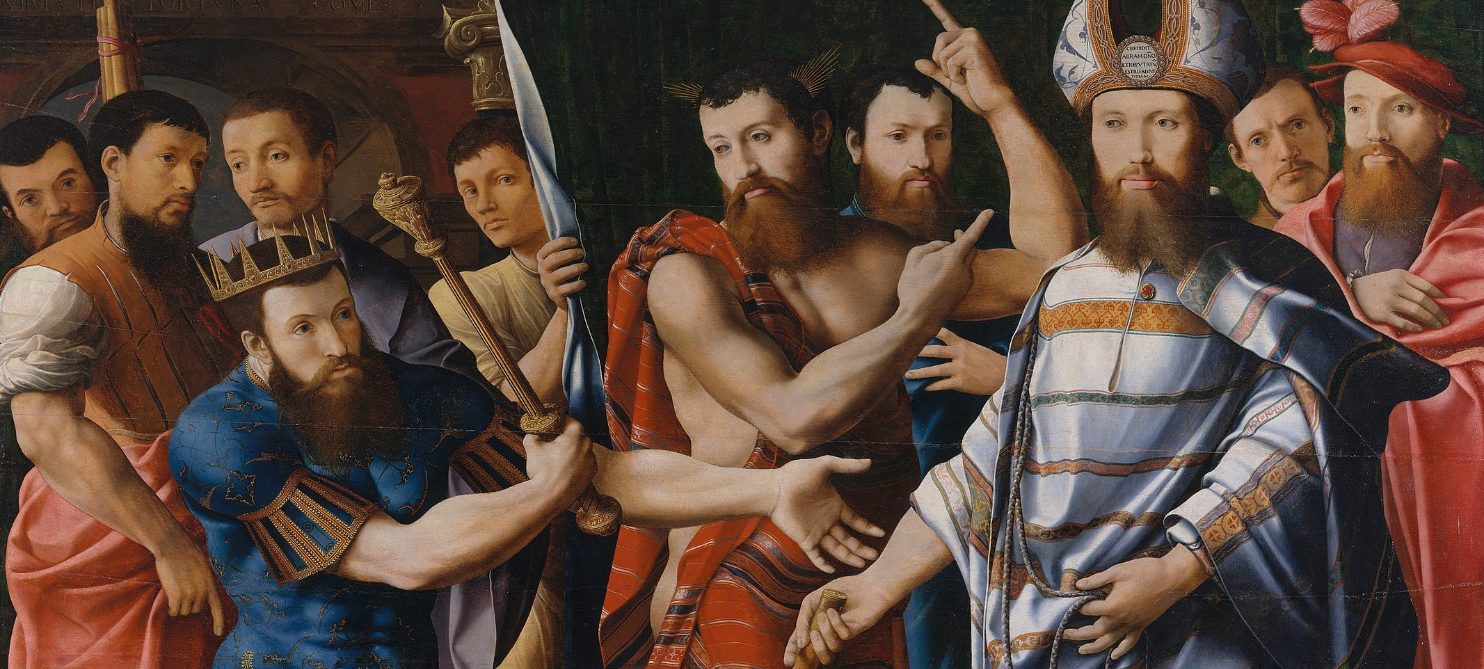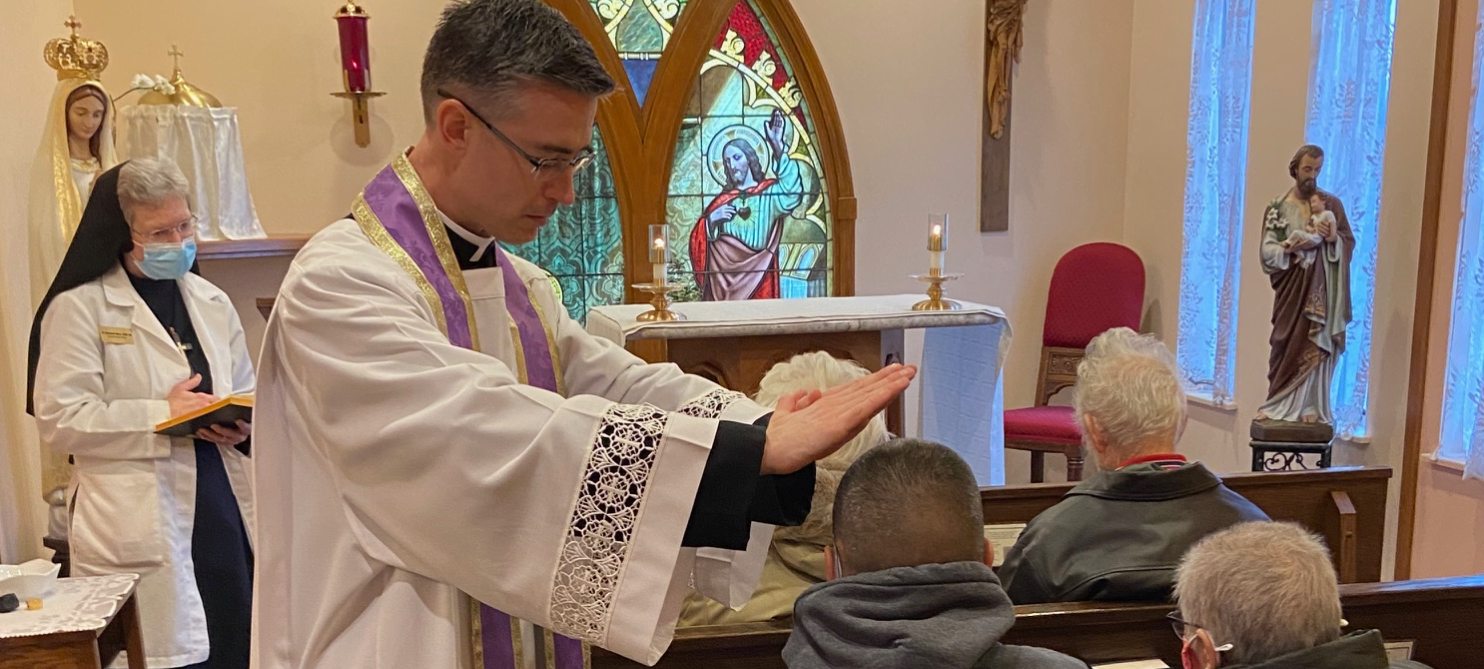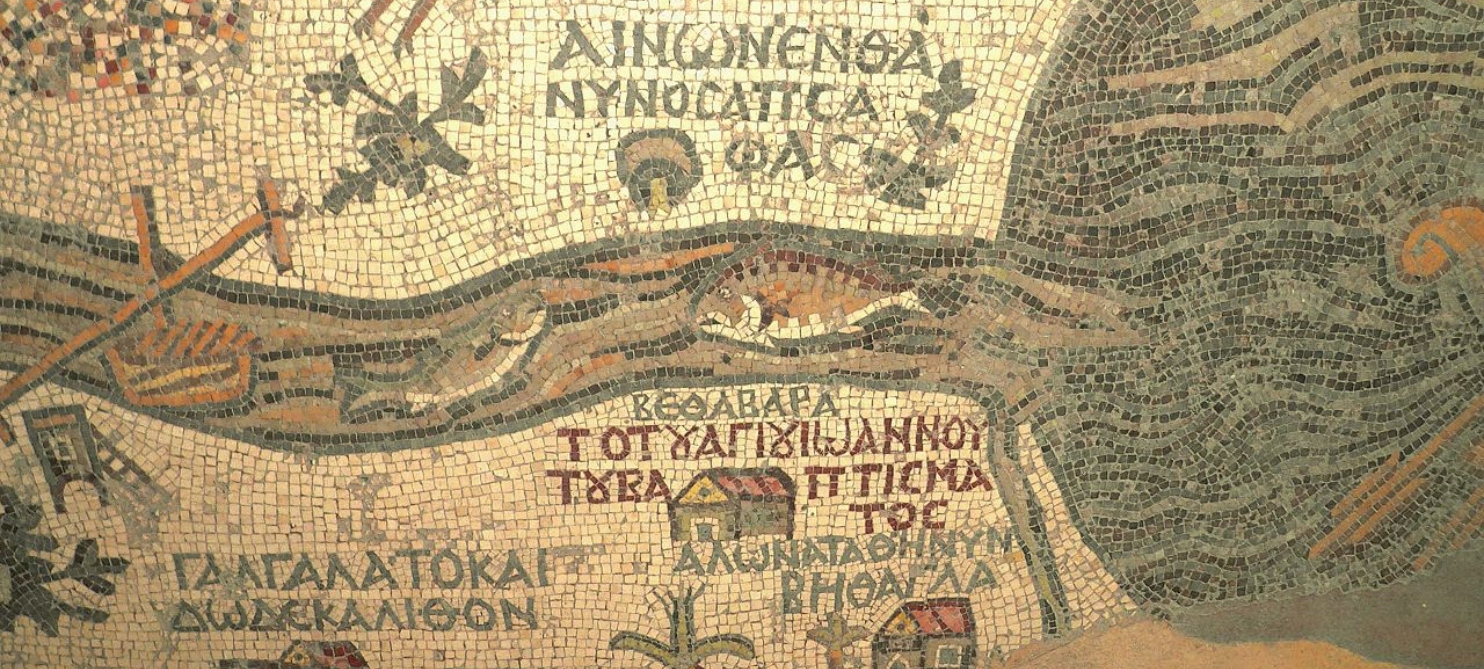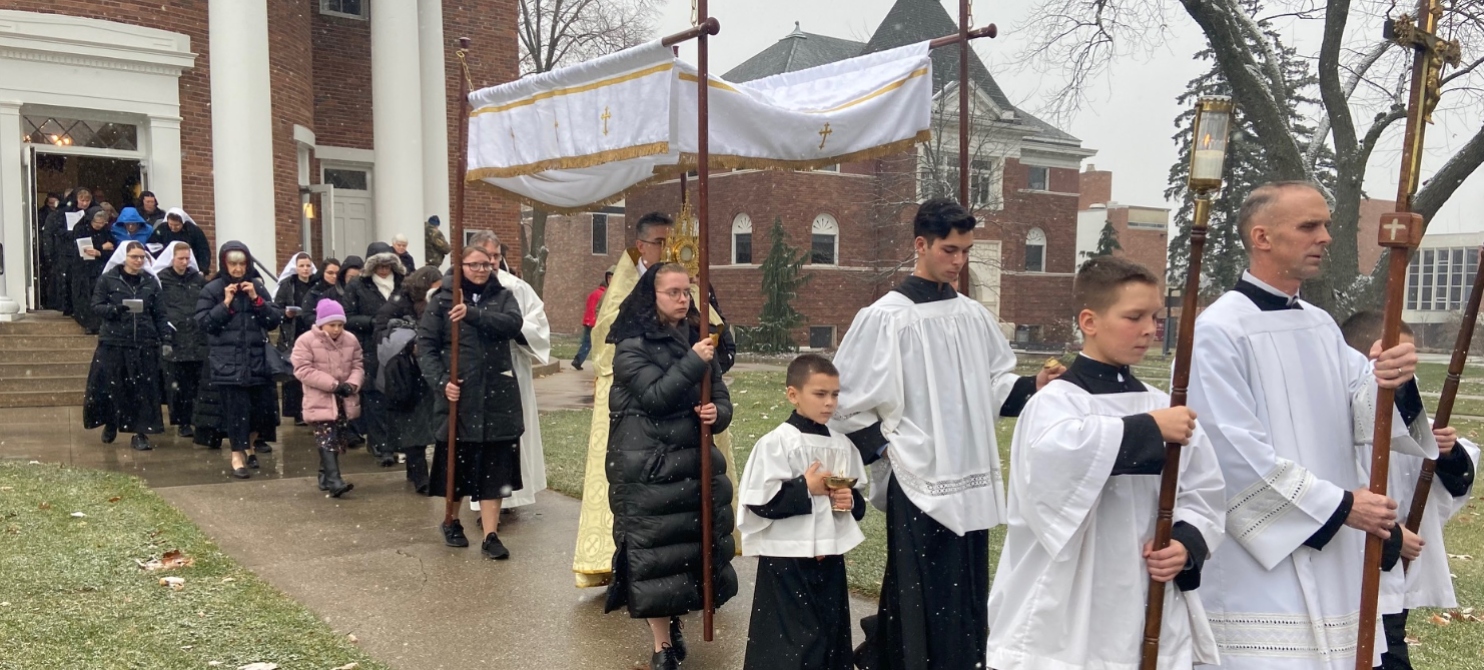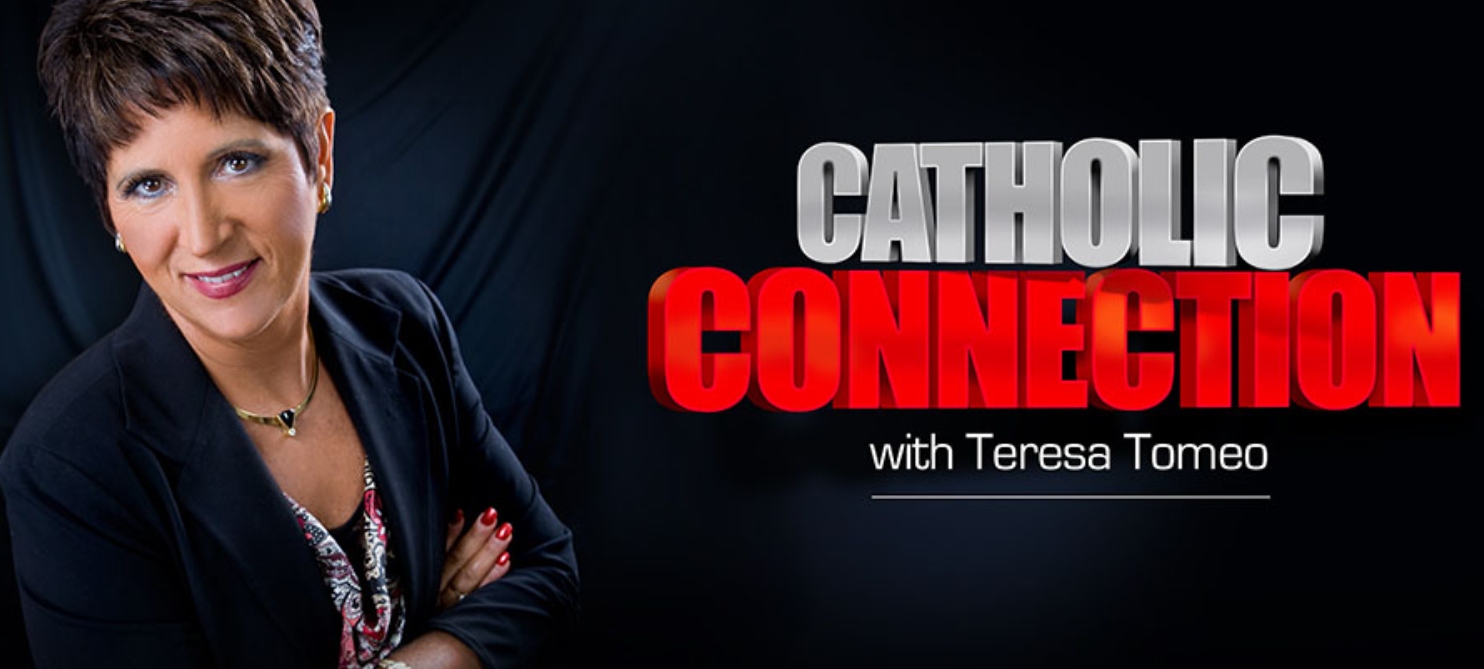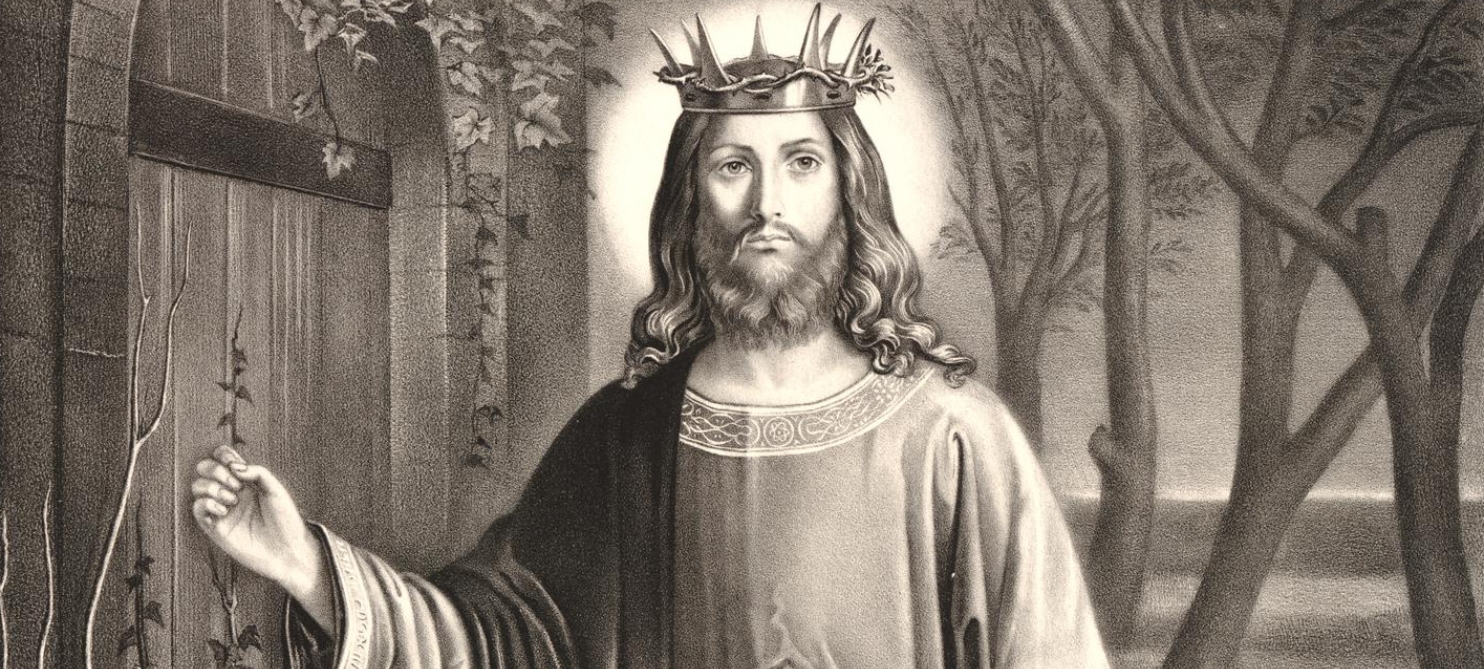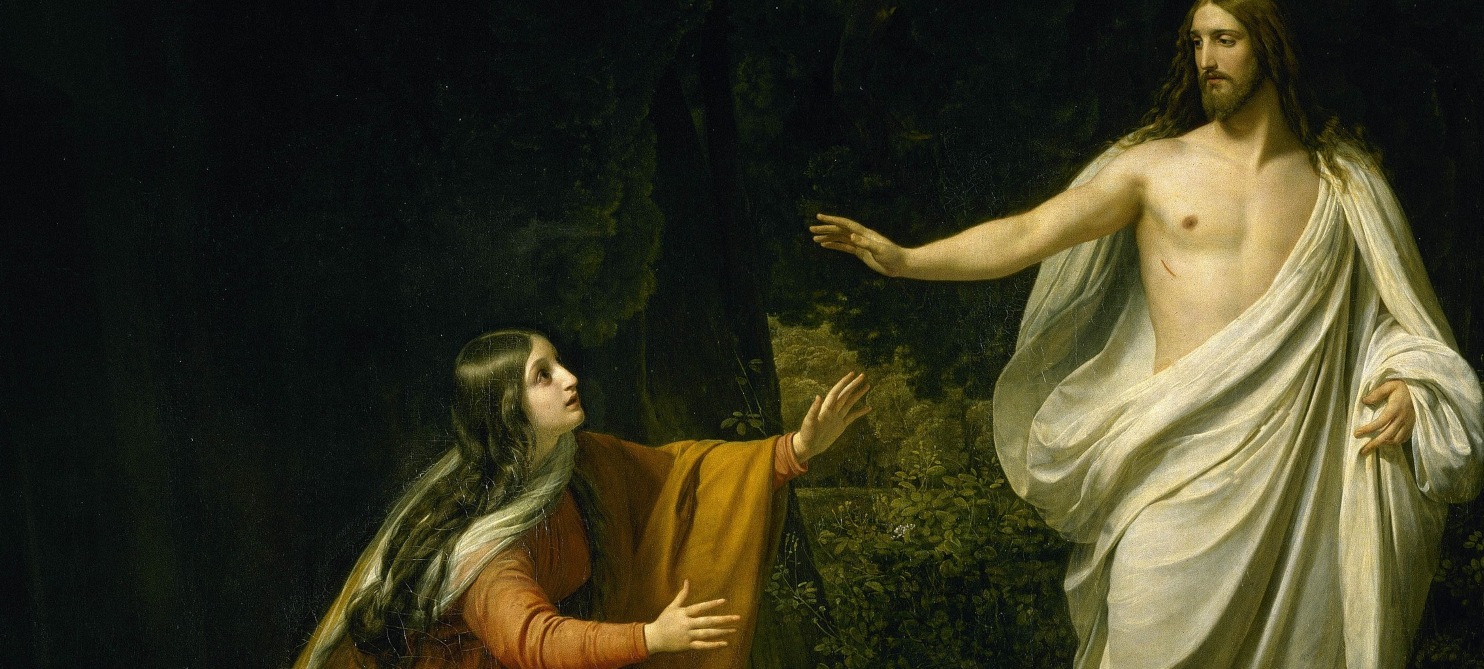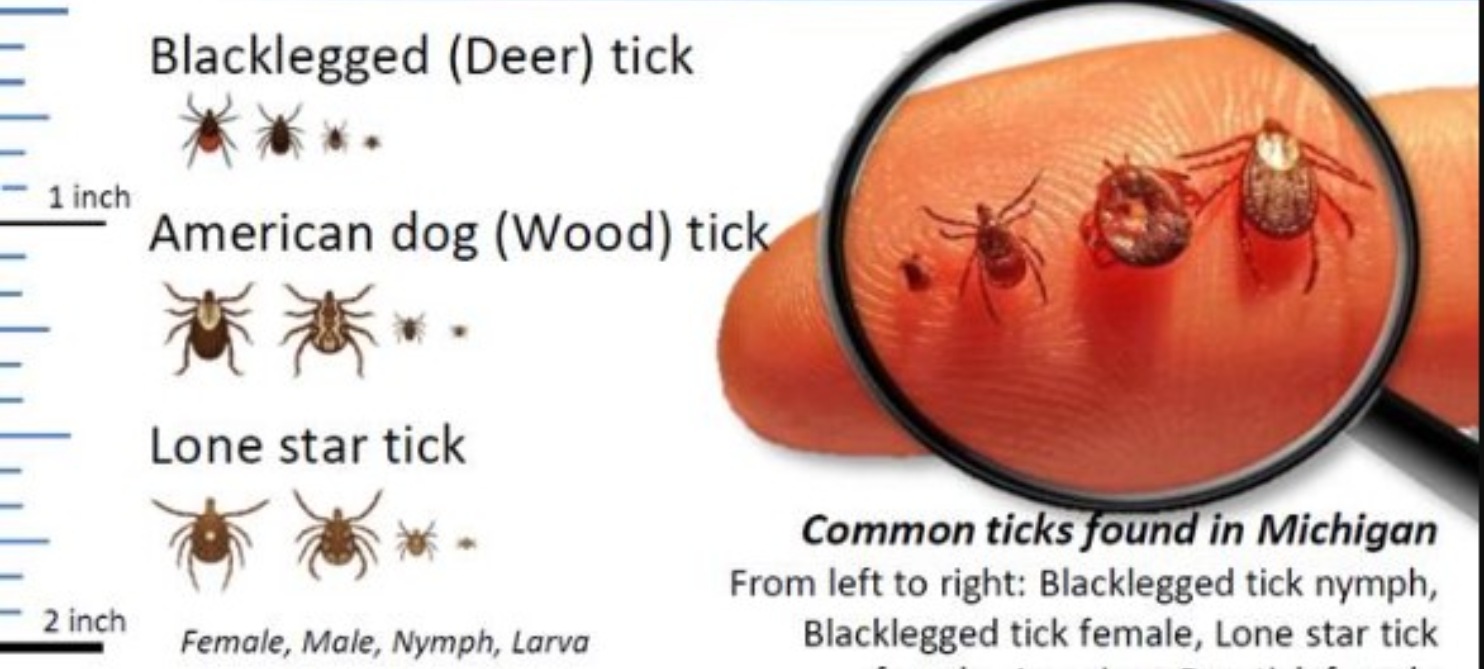“And Jesus said unto them, ‘With desire I have desired to eat this Passover with you before I suffer…’”[i] Holy Thursday is properly the celebration of the institution of the Most Holy Eucharist, the Body and Blood of the Lord. With His face set like flint toward Jerusalem, Jesus entered the holy city on Palm Sunday and was greeted like a king. He was determined to do the Father’s will. Earlier in His public ministry, in John chapter 4, Jesus told the disciples that His food is to do the will of the Father. Now, on Holy Thursday, He gives His Body and Blood as food and nourishment in such a way that He can continue to be fully present in His Church.
“The food that Christ had to eat is the salvation of men; this is what he desired.”
St. Thomas comments on St. John’s Gospel 4:27-33: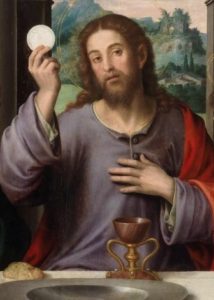
The food that Christ had to eat is the salvation of men; this is what he desired. When he says that he has food to eat, he shows how great a desire he has for our salvation. For just as we desire to eat when we are hungry, so he desires to save us: My delight is to be with the children of men (Prov. 8:31). So he says, I have food to eat, i.e., the conversion of the nations, which you do not know; for they had no way of knowing beforehand about this conversion of the nations.[ii]
Let us take part in the Passover according to the teaching of the Gospel…not only for a time, but eternally. Let us regard as our home the heavenly Jerusalem.
We read in a homily by Saint Gregory Nazianzen, we are soon going to share in the Passover:
Before long, however, when the Word drinks the new wine with us in the kingdom of his Father, we shall be keeping the Passover in a yet more perfect way, and with deeper understanding. He will then reveal to us and make clear what he has so far only partially disclosed. For this wine, so familiar to us now, is eternally new. It is for us to learn what this drinking is, and for him to teach us. He has to communicate this knowledge to his disciples, because teaching is food, even for the teacher.
So let us take our part in the Passover prescribed by the law, not in a literal way, but according to the teaching of the Gospel; not in an imperfect way, but perfectly; not only for a time, but eternally. Let us regard as our home the heavenly Jerusalem, not the earthly one; the city glorified by angels, not the one laid waste by armies. We are not required to sacrifice young bulls or rams, beasts with horns and hoofs that are more dead than alive and devoid of feeling; but instead, let us join the choirs of angels in offering God upon his heavenly altar a sacrifice of praise. We must now pass through the first veil and approach the second, turning our eyes toward the Holy of Holies. I will say more: we must sacrifice ourselves to God, each day and in everything we do, accepting all that happens to us for the sake of the Word, imitating his passion by our sufferings, and honoring his blood by shedding our own. We must be ready to be crucified.[iii]
If we cannot die of love for Him, at least we should live for Him alone
In a homily for Lent, Saint Francis de Sales adds:
But could God not have provided the world with a remedy other than that of His Son’s death? Certainly, He could have done so, and by a thousand other means. Could He not have pardoned human nature with absolute power and pure mercy, not invoking justice or the intervention of any creature? Doubtless He could, and who would have dared to question or criticize Him? No one, for He is Sovereign Master and can do all He wills…. But He did not will to do so, for what may have been sufficient for our salvation was not sufficient for His love; and to show us how much He loved us, this divine Son died the cruelest and most ignominious of deaths, that of the Cross. The implication in all this is clear: since He died of love for us, we also should die of love for Him; or, if we cannot die of love, at least we should live for Him alone.[iv]
Let us enter this Triduum with hearts open to the love of the Lord. As He offers Himself to us completely, let us keep company with Him on the road to Calvary.
Read the whole homily of Saint Gregory Nazianzen
Image Credit:
de Juanes, Juan. “The Last Supper, c. 1562.” WikiMedia Commons, December 24, 2017. https://commons.wikimedia.org/wiki/File:%C3%9Altima_Cena_-_Juan_de_Juanes.jpg.
[i] “Luke 22:15 | ERV.” Luke 22:15 Parallel: BibleHub. Accessed March 28, 2021. https://biblehub.com/parallel/luke/22-15.htm.
[ii] Saint Thomas. “Commentary on the Gospel of John, Chapter 4, Lecture 3.” In Commentary on the Gospel of John, Chapters 1-8, translated by Fabian R. Larcher, 236–37 (634). Lander, WY: Aquinas Institute for the Study of Sacred Doctrine, 2013.
[iii] Saint Gregory Nazianzen. “We Are Soon Going to Share in the Passover.” Saturday, Lent Week 5 – Office of Readings. Accessed March 27, 2021. http://www.liturgies.net/Liturgies/Catholic/loh/lent/week5saturdayor.htm. (Oratio 45, 23-24: PG 36, 654-655)
[iv] Saint Francis de Sales. The Sermons of Saint Francis de Sales for Lent, edited by Lewis S. Fiorelli, OSFS, translated by Nuns of the Visitation, 180-81. Charlotte, NC: Tan Books, 1987. (Sermon for Good Friday on March 25, 1622)
Posted for Holy Thursday | April 1, 2021



